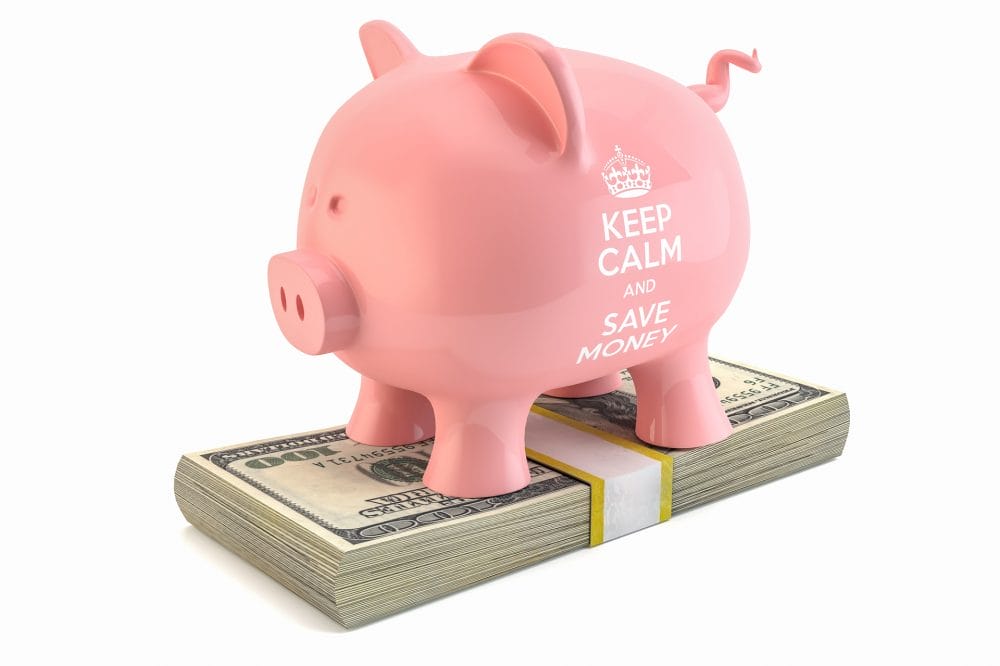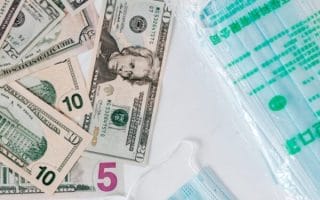
The coronavirus outbreak has shaken up the economy. Many people found themselves suddenly laid off or with their hours substantially cut. Rethinking daily finances is becoming a necessity, particularly since much is still uncertain. Luckily, saving money during the coronavirus is possible. Here’s how to get started.
Grocery Shop Smart
Once COVID-19 made its way solidly into the United States, a degree of panic overcame many shoppers. Quintessential household goods like toilet paper disappeared from store shelves early. Over time, as more Americans were placed under stay-at-home or shelter-in-place orders, households began to stockpile even more products.
While it’s certainly wise to be vigilant about your current stores and replenish critical items at a reasonable pace, don’t let panic dictate how you spend. In the vast majority of cases, clearing a store shelf of all of any item isn’t necessary. As a result, you’re paying a ton up front that doesn’t have to be spent.
While the coronavirus is creating uncertainty, strive to shop smart. Consider how much you genuinely require to meet your needs for a specific amount of time. Once you know, resist the urge to horde. That way, your emotions aren’t destroying your budget.
Additionally, opt for shelf-stable or freezable foods. Some fresh items can spoil quickly. If you are buying them en masse and can’t freeze them, there’s a decent chance some will go bad before you eat it. That means you’re essentially tossing money out of the window.
Resist Takeout and Delivery
Restaurants in a number of states are restricted to takeout and delivery only. As a result, many are fighting for every customer, inundating everyone on their email lists with deals meant to entice during these challenging times.
While the idea of having restaurant-level food show up at your door might be tempting, resist. It’s substantially more expensive than cooking at home in most cases, even with the deals. If saving money is a priority, it’s better to avoid restaurant food entirely.
Get your FREE trial of Simplifi by Quicken. You work hard for your money. Now let’s make it work hard for you.
Contact Your Lenders
Many lenders are offering those impacted by the coronavirus outbreak options for reducing their financial burden. For example, federal student loan interest rates are all at zero, and anyone can get a forbearance. This eliminates a monthly cost without a meaningful penalty, making it easier to adjust your budget during these trying times.
What’s available through other creditors varies. However, most major ones have some sort of program available. Reach out and you may be able to get a reduced interest rate, payment deferment, or other option that can make your outgoing debt repayments easier to manage.
Contact Your Vehicle Insurer
If you usually commute or otherwise put a decent number of miles on your vehicle but aren’t now because of the coronavirus outbreak, it may be time to call your car insurance company. You may be able to alter your policy because your mileage is dramatically less.
In some cases, you’ll be eligible for a savings because your car isn’t moving much. While it may only be a small reduction in your monthly expenses, every little bit does add up.
Reach Out to Utility Companies
If you’ve lost your job due to COVID-19, contact your utility companies, as well. There may be hardship programs that can help you keep your power, water, and garbage services even if you’re struggling to pay.
How the programs work varies from one provider to the next. However, it doesn’t hurt to ask if you aren’t sure you can cover this expense in the interim.
Downgrade Your Cellphone Service
When you’re spending all of your time at home, an unlimited (or high GB) cellphone plan usually isn’t a necessity. You can connect the device to home Wi-Fi, ensuring you don’t use much (if any) data while you’re under a stay-at-home order.
Consider downgrading your service level if you can do so without violating your contract and incurring a fee. Then, rely on your home internet instead. Connect your devices to Wi-Fi. Use a home computer for voice or video calls with family members and friends through apps like Skype, Zoom, and Discord. By doing so, you can reduce your cellphone use, ensuring a downgraded plan works, and you can shrink that monthly cost.
Do you have any tips that can help with saving money during the coronavirus outbreak? Share them in the comments below.
Read More:
- Guide to Mortgage Relief During Coronavirus Outbreak
- How to Pay the Bills During the Coronavirus Pandemic
- Coronavirus Means Working from Home for More People
If you enjoy reading our blog posts and would like to try your hand at blogging, we have good news for you; you can do exactly that on Saving Advice. Just click here to get started.
Tamila McDonald is a U.S. Army veteran with 20 years of service, including five years as a military financial advisor. After retiring from the Army, she spent eight years as an AFCPE-certified personal financial advisor for wounded warriors and their families. Now she writes about personal finance and benefits programs for numerous financial websites.






Comments